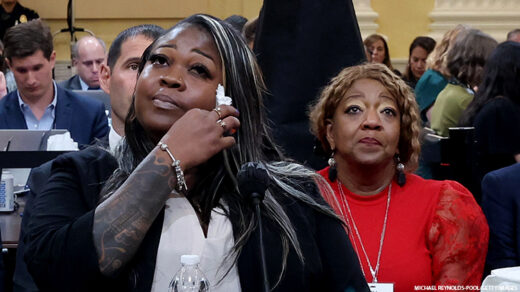California’s LGBTQ+ Pardon Program Sees Little Use After Three Years
Author: Trudy Ring

California Gov. Gavin Newsom announced a program in 2020 to pardon people who’d been arrested and prosecuted under anti-LGBTQ+ laws, but so far only one living person has received a pardon, and one has been granted posthumously.
The living man who’s been pardoned is Henry Pachnowski, 83, of Maryland, the Los Angeles Times reports. Pachnowski was charged with “lewd conduct” for consensual sex with another man in a car in Orange County, Calif., in 1967, and he was jailed for 10 days. Newsom pardoned him last year.
The posthumous pardon has gone to legendary civil rights advocate Bayard Rustin, a key aide to Martin Luther King. Rustin was convicted under a vagrancy law for consensual sex with a man in California in 1953. Legislators had been calling for a pardon of Rustin, who died in 1987, and Newsom launched the program by pardoning him.
“In California and across the country, many laws have been used as legal tools of oppression, and to stigmatize and punish LGBTQ people and communities and warn others what harm could await them for living authentically,” Newsom said in a press release announcing the initiative. “I thank those who advocated for Bayard Rustin’s pardon, and I want to encourage others in similar situations to seek a pardon to right this egregious wrong.”
LGBTQ+ people had been arrested and prosecuted in California and across the nation under laws against vagrancy, loitering, and sodomy, Newsom noted at the time. California decriminalized gay sex in 1975, and in 1997 the state began allowing people convicted for consensual adult sexual activity to request removal from the sex offender registry. But that does not remove the conviction or amount to a pardon.
Since it’s been so long since California repealed the law against same-sex activity, there may be few people still living who request a pardon, the Times notes. But activists said the pardon program is limited, and they urged Newsom to take additional actions, such as commuting sentences for those currently imprisoned.
“While optically this initiative appears to be righting a historical wrong, it really has very little, if any, impact on the actual lives of the people subjected to discriminatory laws in the first place,” attorney Jennifer Orthwein told the Times. “I think if Gov. Newsom wants to have an actual impact on the current discrimination LGBTQ+ people face, he should take a look at the discriminatory laws that are disparately impacting LGBTQ+ folks right now and apply equitable solutions.”
LGBTQ+ people often receive longer sentences than others and are subjected to more stringent discipline when incarcerated, she said. They are also disproportionately imprisoned and frequently face violent attacks during their sentences, activists point out.
Bamby Salcedo, president and chief executive of the TransLatin@ Coalition, said Newsom should look at the convictions of transgender people who had to engage in sex work or other criminalized activity because of anti-trans discrimination.
“I was not able to obtain employment or proper health care. Being that there was no opportunities for me as a young trans woman, the only venue to survival was the street economy,” Salcedo told the Times. “I have been able to reform my life and do a lot of good. I’ve been clean for more than 22 years.”
Attorney Josh Kim noted that pardons are rare and that the process more public and difficult than expungement. Expungement keeps the charge on a person’s record but makes clear it has been dismissed.
“To rely on pardons — this executive grant of mercy that is exceptional almost by definition — as a form of policy, I think it’s a misguided effort. We should look at relief that benefits everybody,” Kim told the paper. “But it doesn’t mean my clients wouldn’t want it. Symbolic relief is not nothing.”
Pachnowski said the pardon has meant a great deal to him. He came to the U.S. at age 11 after surviving the Holocaust, and his only other criminal conviction came in the 1960s for marijuana possession, which led to the loss of his green card.
“I am thrilled that this finally happened,” he told the Times about the pardon. “I thought I was going to die with that. My life really hasn’t been the happiest. It almost feels like now I’m whole.”
Izzy Gardon, a spokesperson for Newsom, said the governor “welcomes further input from advocacy groups and others on this effort,” and he encouraged eligible people to seek pardons or other remedies for unjust convictions. Some of those remedies, such as dismissal of charges, may be more appropriate for them than pardons, he said.
State Sen. Scott Wiener, a gay man who’d pushed for Rustin’s pardon, said people may not know about the program or be reluctant to come forward. “These are historically horrific criminal laws that destroyed countless people’s lives,” he told the paper. “I don’t know exactly why the uptake of this program has been so low, but it could be a combination of shame and of people not knowing about it.”
From Your Site Articles
Original Article on The Advocate
Author: Trudy Ring




